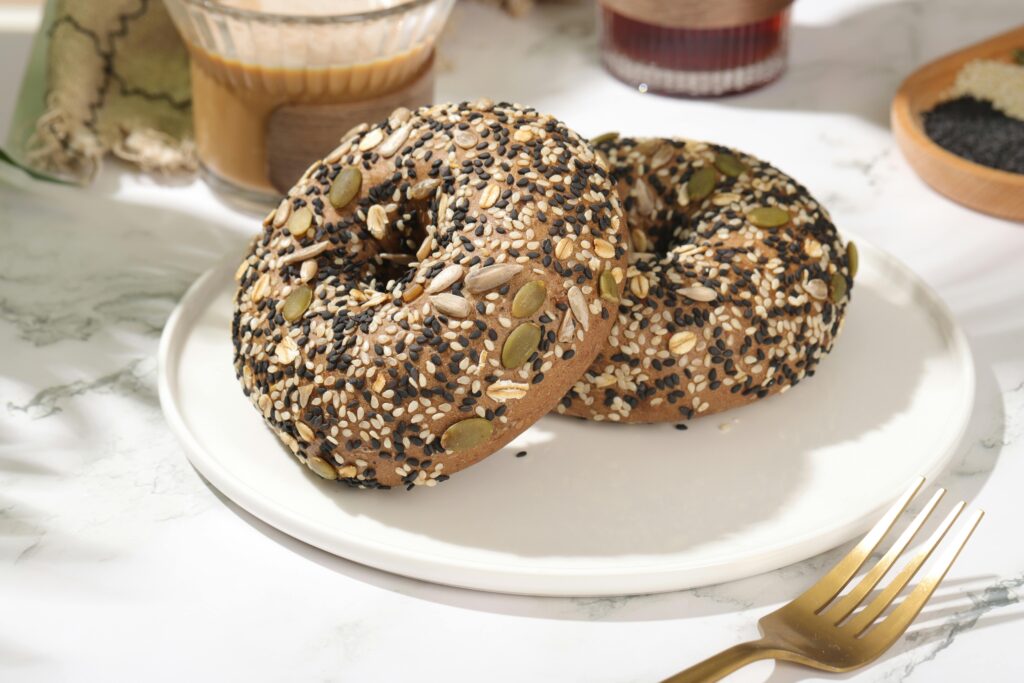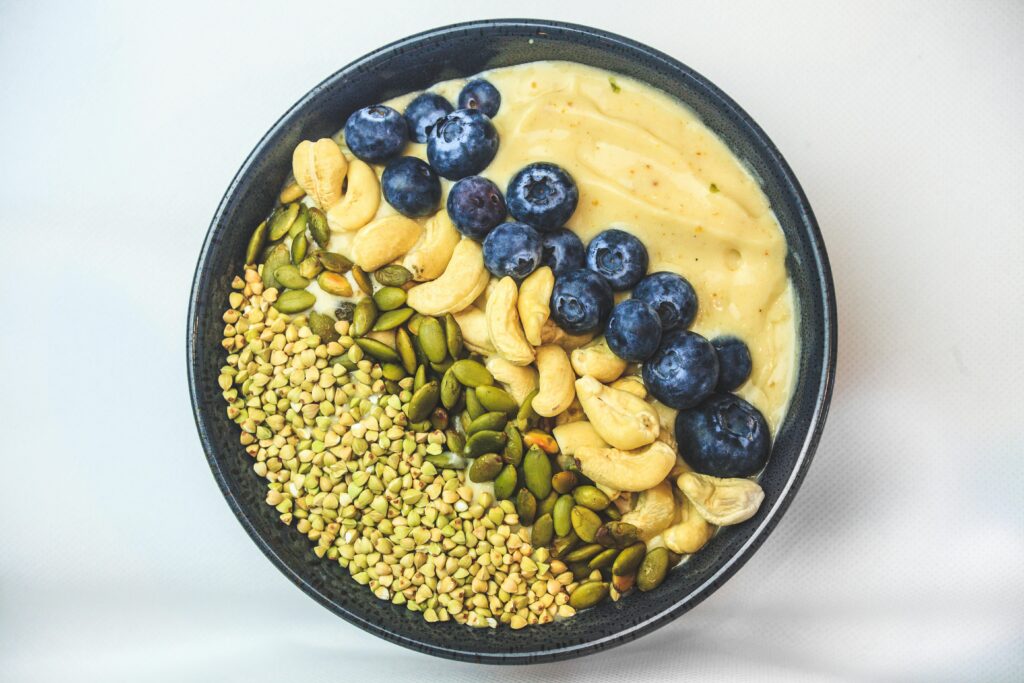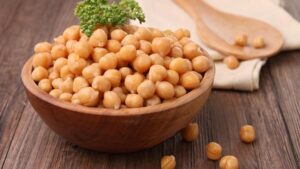The Super Powers Of Seeds

Seeds, often overlooked in their simplicity, harbor a multitude of “superpowers” that contribute significantly to ecological balance, human health, and the sustainability of our environment. Here are some of the remarkable capabilities and benefits of seeds:
Nutritional Powerhouses
Seeds are packed with essential nutrients, making them a vital component of a healthy diet. They typically contain:
- Proteins: Essential for building and repairing tissues.
- Healthy Fats: Such as omega-3 and omega-6 fatty acids, which support brain and heart health.
- Fiber: Aiding in digestion and promoting a healthy gut.
- Vitamins and Minerals: Including vitamin E, magnesium, zinc, and more, which are crucial for various bodily functions.
- Medicinal Properties
- Many seeds have been used in traditional medicine for centuries:
- Fenugreek: Used to manage diabetes and increase milk production in breastfeeding women.
- Chia Seeds: Known for their anti-inflammatory properties and ability to aid in weight management.
- Pumpkin Seeds: Beneficial for prostate health and rich in magnesium.
Types of Seeds and Their Benefits
Chia Seeds
- Nutritional Profile: High in omega-3 fatty acids, fiber, protein, calcium, magnesium, and antioxidants.
- Health Benefits:
- Digestive Health: The high fiber content aids in digestion and promotes regular bowel movements.
- Heart Health: Omega-3 fatty acids help reduce inflammation and lower the risk of heart disease.
- Weight Management: Fiber and protein promote satiety and reduce overall calorie intake.
- Bone Health: High calcium content supports bone strength.
Flaxseeds
- Nutritional Profile: Rich in omega-3 fatty acids, lignans (antioxidants), and fiber.
- Health Benefits:
- Heart Health: Omega-3 fatty acids and lignans help lower cholesterol levels.
- Hormonal Balance: Lignans may help balance hormone levels and reduce the risk of hormone-related cancers.
- Digestive Health: Soluble fiber helps improve digestion and prevent constipation.
Pumpkin Seeds

- Nutritional Profile: High in magnesium, zinc, iron, protein, and healthy fats.
- Health Benefits:
- Prostate Health: Rich in zinc, which supports prostate health.
- Heart Health: Magnesium helps regulate blood pressure and prevent heart disease.
- Sleep Quality: Contains tryptophan, which can improve sleep.
Sunflower Seeds
- Nutritional Profile: Excellent source of vitamin E, selenium, magnesium, and healthy fats.
- Health Benefits:
- Skin Health: Vitamin E promotes healthy skin and protects against UV damage.
- Anti-Inflammatory: Selenium and vitamin E have anti-inflammatory properties.
- Heart Health: Magnesium helps maintain healthy blood pressure.
Sesame Seeds
- Nutritional Profile: High in calcium, magnesium, iron, phosphorus, and B vitamins.
- Health Benefits:
- Bone Health: Rich in calcium and phosphorus, which are essential for bone health.
- Cholesterol Control: Lignans like sesamin and sesamolin help lower cholesterol levels.
- Blood Pressure Regulation: Magnesium helps regulate blood pressure.
Hemp Seeds
- Nutritional Profile: High in protein, omega-3 and omega-6 fatty acids, and all nine essential amino acids.
- Health Benefits:
- Muscle Health: High-quality protein supports muscle repair and growth.
- Heart Health: Balanced omega-3 and omega-6 fatty acids support cardiovascular health.
- Skin Health: Essential fatty acids help maintain healthy skin.
How to Incorporate Seeds into Your Diet
- Smoothies: Add a tablespoon of chia, flax, or hemp seeds to your morning smoothie for a nutritional boost.
- Salads: Sprinkle sunflower, pumpkin, or sesame seeds on top of your salads for added crunch and nutrients.
- Baked Goods: Incorporate seeds into bread, muffins, and granola bars. Ground flaxseeds can be used as an egg substitute in vegan baking.
- Yogurt and Oatmeal: Mix seeds into yogurt, oatmeal, or cereal for added texture and nutrition.
- Snacks: Enjoy roasted pumpkin or sunflower seeds as a healthy snack.
- Seed Butters: Use sunflower seed butter or tahini (sesame seed paste) as a spread or dip.
- Energy Balls: Combine seeds with nuts, dried fruits, and honey to make energy balls for a nutritious snack.
Tips for Maximizing Nutrient Absorption
- Grinding: Flaxseeds should be ground to increase nutrient absorption, as whole flaxseeds can pass through the digestive system undigested.
- Soaking: Chia seeds and flaxseeds can be soaked in water to form a gel-like substance, which can aid digestion and make them easier to consume.
- Storage: Store seeds in a cool, dark place, preferably in airtight containers. Refrigerating seeds can extend their shelf life and prevent them from going rancid.
Potential Concerns and Considerations
- Allergies: Some individuals may be allergic to certain seeds, such as sesame seeds. Always introduce new seeds into your diet gradually to monitor for any adverse reactions.
- Caloric Density: Seeds are calorie-dense due to their high fat content. While they are healthy, it’s important to consume them in moderation to avoid excessive calorie intake.
- Phytic Acid: Seeds contain phytic acid, which can bind minerals and reduce their absorption. Soaking or sprouting seeds can help reduce phytic acid levels.
Incorporating a variety of seeds into your diet can provide a broad spectrum of nutrients and health benefits. They are versatile, easy to add to meals, and can significantly enhance the nutritional profile of your diet. The superpowers of seeds encompass a broad spectrum of benefits that impact health, the environment, agriculture, and culture. Recognizing and harnessing these powers can lead to a more sustainable and health-conscious world.




